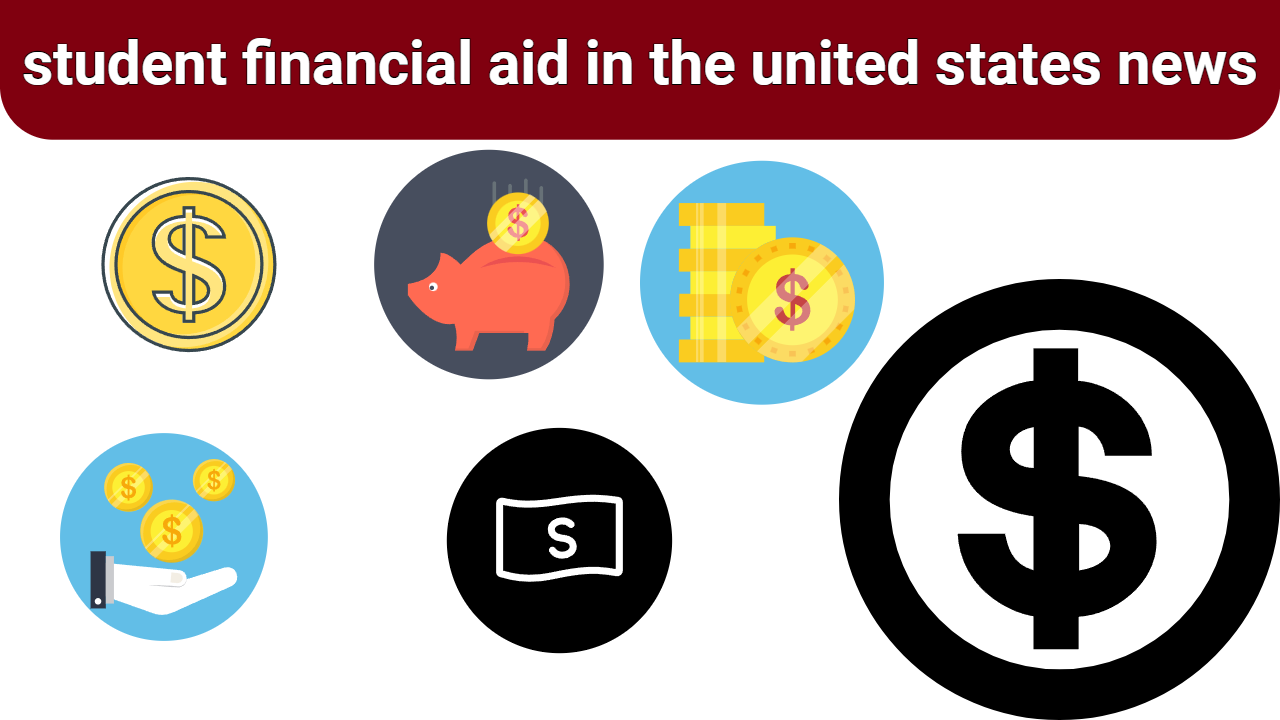Staying informed about the latest developments in student financial aid is crucial for students, parents, and educators. This article provides a comprehensive overview of recent news and updates on student financial aid in the United States, covering changes in federal aid policies, new scholarship opportunities, and expert insights to help you navigate the evolving landscape of educational funding.

Recent Changes in Federal Student Aid Policies
- FAFSA Simplification:
- The Free Application for Federal Student Aid (FAFSA) process has been simplified to make it more accessible. The new changes reduce the number of questions and streamline the application process, aiming to encourage more students to apply for financial aid.
- Pell Grant Increases:
- The federal government has increased the maximum Pell Grant award to help low-income students. This increase provides additional financial support to cover tuition and other educational expenses.
- Income-Driven Repayment Plans:
- Updates to income-driven repayment plans have been implemented to ease the burden of student loan debt. New plans offer lower monthly payments and potential loan forgiveness after a certain number of years.
New Scholarship Opportunities
- STEM Scholarships:
- Several new scholarships targeting students pursuing degrees in science, technology, engineering, and mathematics (STEM) have been introduced. These scholarships aim to encourage more students to enter high-demand fields.
- Diversity and Inclusion Scholarships:
- Organizations and institutions are offering scholarships to promote diversity and inclusion in higher education. These scholarships support underrepresented groups, including minorities, women, and first-generation college students.
- Environmental Sustainability Scholarships:
- With growing emphasis on environmental sustainability, scholarships are now available for students focusing on environmental studies, renewable energy, and related fields.
Expert Insights on Student Financial Aid
- Navigating the FAFSA:
- Experts recommend starting the FAFSA application process early and seeking help from financial aid advisors if needed. Accurate and timely submission can significantly impact the amount of aid received.
- Maximizing Scholarship Opportunities:
- Students are encouraged to apply for multiple scholarships and seek out less competitive, niche opportunities. Utilizing scholarship search engines and local community resources can increase the chances of securing funding.
- Understanding Loan Repayment Options:
- Financial advisors emphasize the importance of understanding various loan repayment options, including income-driven plans and refinancing. Being informed about these options can help manage and reduce debt effectively.
Impact of COVID-19 on Student Financial Aid
- Emergency Grants:
- In response to the COVID-19 pandemic, emergency grants have been made available to students facing financial hardships. These grants aim to support students in continuing their education during challenging times.
- Changes in Enrollment Patterns:
- The pandemic has led to changes in enrollment patterns, with more students opting for online or hybrid learning. This shift has impacted the allocation and distribution of financial aid.
- Increased Support for Mental Health:
- Recognizing the mental health challenges posed by the pandemic, institutions are increasing support services. Financial aid packages now often include provisions for mental health resources and counseling.
Conclusion
Keeping up with the latest news and updates on student financial aid in the United States is essential for making informed decisions about educational funding. From federal policy changes and new scholarship opportunities to expert insights and the impact of COVID-19, understanding these developments can help you secure the financial support needed to achieve your academic goals.
FAQs
1. What are the recent changes to the FAFSA process? The FAFSA process has been simplified to reduce the number of questions and streamline the application, making it more accessible to a wider range of students.
2. How has the maximum Pell Grant award changed? The federal government has increased the maximum Pell Grant award to provide additional financial support for low-income students.
3. What new scholarship opportunities are available? New scholarships targeting STEM fields, diversity and inclusion, and environmental sustainability have been introduced to support students in these areas.
4. How can I navigate the student loan repayment process? Understanding income-driven repayment plans and refinancing options can help manage student loan debt effectively. Seek advice from financial aid counselors to explore the best options for your situation.